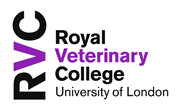Project Summary:
Developing vertebrate embryos are exposed to a wide variety of environments, be it in the water, in a shell or in the womb. Previous research indicates that vertebrates are exposed to a microbiome during development and that there is an intimate relationship between commensal microbial communities and the tissues they are in contact with. However, despite this increasing body of evidence, there is little research to determine whether microbiota communities affect the normal development of the embryo.
This project will focus on the role that the microbiome plays in development of the nervous system, using the Germ-Free zebrafish embryo and larvae model. We will examine changes in the development of the nervous system in the absence of a microbiome and will investigate how manipulation of the microbiome alters gene expression at different stages of neural development. We will also investigate how manipulation of the microbiome impacts upon the phenotype of zebrafish with epilepsy, focussing primarily on zebrafish models of juvenile Neuronal Ceroid Lipofuscinosis, an inherited neurodegenerative disease.
This work will identify the influential role of the microbiome in both normal nervous system development and in neurodevelopmental disease. It will opening up new avenues for the understanding of how nervous system architecture is established and how it can be influenced by the environment and may lead to new methods for manipulating the outgrowth of neurons and in modulating disease.
This project will give the student opportunities to use the germ-free zebrafish model alongside a variety of methodological approaches including: confocal microscopy, immunohistochemistry, behavioural assays and molecular biology techniques (including q-PCR and RNA-Seq analysis).
Requirements
Essential
- Must meet our standard PhD entry requirements
- The successful candidate should have been awarded or expect to achieve at least an upper second class honours degree (or equivalent) in a biological/biomedical science or related discipline.
- Experience of basic molecular biology techniques including qPCR and microscopy
- Knowledge of developmental biology
- Strong motivation with evidence of independent research skills
- Good written and oral communication skills
Desirable
- A Masters degree in a biological/biomedical science or related discipline
- Laboratory experience with the zebrafish embryo/larvae model
- Experience with confocal microscopy
- Knowledge of the microbiome in relation to health and disease
The successful candidate will be required to work with the zebrafish model.
This is a 3 year fully-funded studentship from the Anatomical Society, open to applicants eligible for "Home" fees.
A non-UK student who has been granted ‘Indefinite Leave to Remain in the UK’ (in effect a ‘home-student’ according to the UK Medical Research Council) is entitled to be considered for a full Anatomical Society Studentship.
Please note that EU/EEA and Swiss national students may no longer be eligible for the “Home” rate of tuition fees, dependent on personal circumstances (including immigration status and residence history in the UK) and UK government rules which are currently being developed. For up-to-date information on fees for EU/EEA and Swiss national students following brexit please see our fees and funding page.
The studentship will commence 1st October 2021, and the funding will cover fees and a stipend, currently £17,609 per annum for 2021/22. This amount is reviewed annually and may change.
If you are interested in applying for this position, please follow the link below. Please use your personal statement to demonstrate any previous skills or experience you have in laboratory based research and in using quantitative research methods.
How to Apply
For more information on the application process please see How to Apply.
Interviews will take place remotely over zoom.
We welcome informal enquiries - these should be directed to Dr Imelda McGonnell: [Email Address Removed]
Deadline: 08/06/2021

 Continue with Facebook
Continue with Facebook



